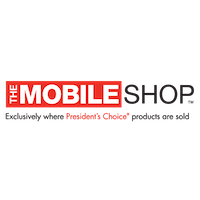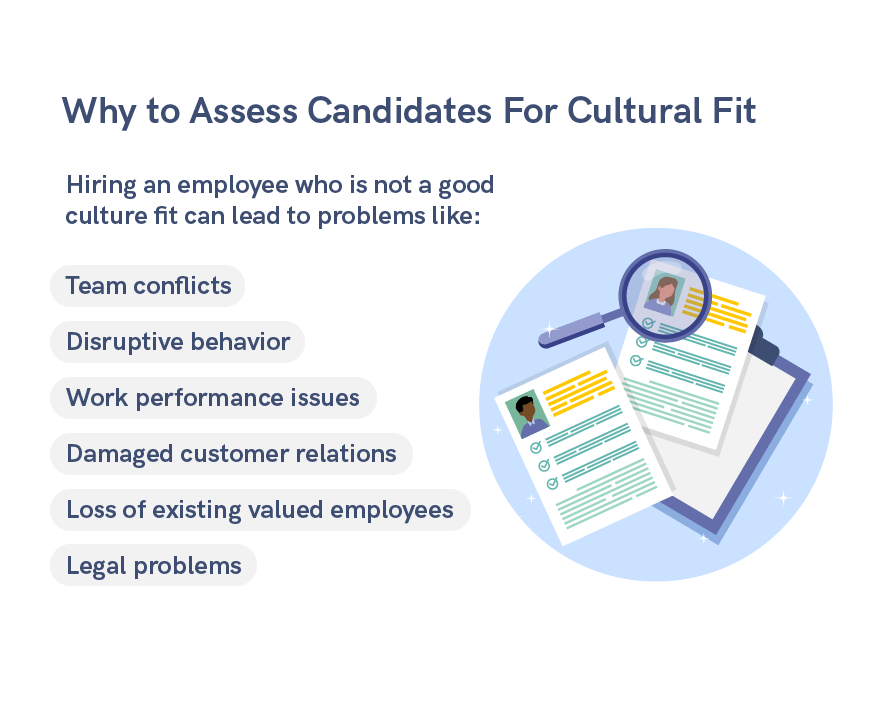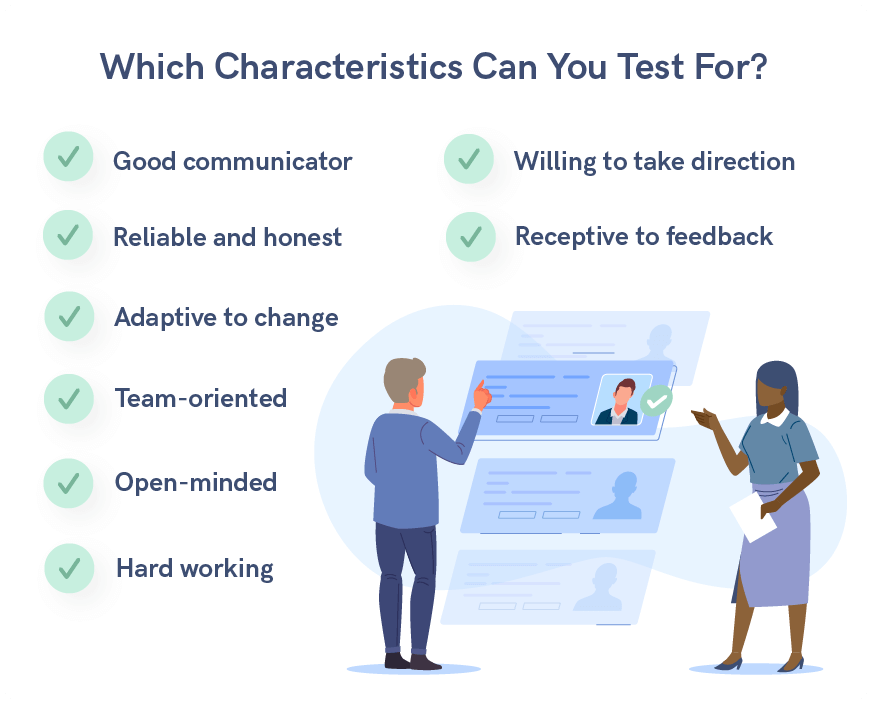
Assessing cultural fit as part of your personality testing allows you to measure the potential of a candidate to thrive in your company. Your corporate culture is key to your success, reflecting your values, mission, and management style. You don't want to upset the delicate balance of your team when you grow and add new employees. Hiring candidates who are a good cultural fit will increase the likelihood of their success and help ensure your existing employees remain engaged and productive.









